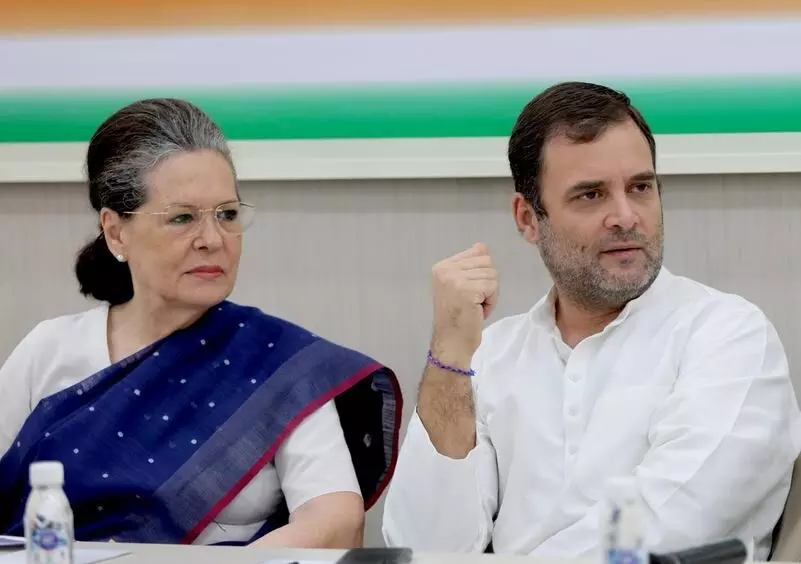
Internal bickering again in Congress
text_fieldsFile photo of Sonia Gandhi and Rahul Gandhi
These are times when discussions are being held to form a grand alliance to resist the fascist regime under Narendra Modi. As the party with roots in almost all states and being the largest single opposition party in the parliament, the Congress has a responsibility to take a lead in this. The democratic society is desperate for a broad secular alliance like the one UPA model of 2004. The party, however, is fleeing from such responsibilities and stuck in internal tussles, ego clashes and fight for power. At least that is what recent developments point to. Punjab was one of the last strongholds of the party which is steadily losing ground everywhere. The party rebellions there which started since they assumed power in 2017 finally ended in Captain Amarinder Singh's resignation. The other day claimed to have severed ties with the Congress and is planning to form a new party. On the other side, PCC president Navjot Singh Sidhu who was the Captain's rival has also resigned following differences in opinions regarding the choice of Chief Minister. Just as the High Command is trying its best to appease Sidhu, similar news is coming from Chhattisgarh. In between all this, some senior leaders including Kapil Sibal are also up in conflict with the central leadership. While the leadership has announced convening the Congress Working Committee soon to resolve the issues, it remains to be seen how much this will be of use.
The Congress had gone through something similar last August as well. It started when 23 senior leaders (G23) sent a letter to Sonia Gandhi asking for a total structural overhaul in the party. Although Sonia Gandhi had offered her resignation as the interim president, one section of the leadership intervened and persuaded her to stay on as a means of resolving the issue. But it was not Sonia or the Nehru family that was the G23 's target. They only expressed what the rank and file of the party wanted - they demanded more democratisation of the party and reclamation of its lost roots with systemic activities. This includes fair and constitutional elections to the AICC and other committees, full time and active leadership in party positions, and open cooperation with other like-minded anti-BJP allies. These could also be seen as a clear blueprint that delineates the weaknesses of the organisation and outlines how to reclaim the lost greatness. These creative and constructive criticisms at the face of emotional responses from leadership including Rahul Gandhi, and such discussions never picked up since.
Now again when Kapil Sibal took up the issue again in the light of the developments in Punjab, the reactions have not changed. While Kapil Sibal, Anand Sharma, Shashi Tharoor, P Chidambaram, and Manish Tiwari argue that there should be an opportunity for meaningful discussions in party forums, the other side is welcoming it by throwing tomatoes! If this is the approach, then the noise will only strengthen the Sangh Parivar. The party needs to be able to formulate and implement an action plan for the changing times. The Congress still has the potential to organize nationally against the Sangh Parivar rule and to form an alliance of anti-fascist and secular parties. The same is true of the G23 leaders' suggestions. Unfortunately, instead of resorting to such initiatives, the party looks contented with being a champion the negative politics of soft Hindutva. Ultimately this will destroy not only Congress but also the very idea of a secular India.






